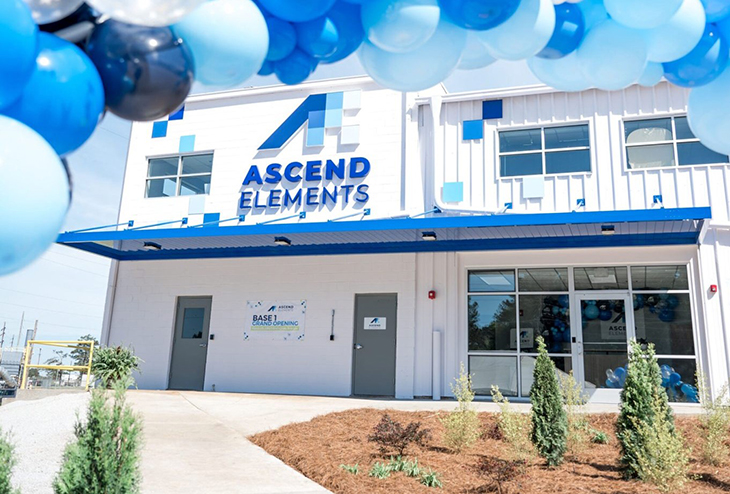
In the city of Covington, Georgia, a new state-of-the-art 30,000-ton-per-year recycling facility was opened, marking a significant milestone in battery and battery scrap recycling.
Managed by a startup based in Massachusetts, this brand-new facility is set to extract valuable minerals like lithium carbonate, cobalt, manganese, and others, from the batteries and reintroduce them to the market. In doing so, they aim to overcome the considerable challenges normally associated with establishing new mining ventures.
For Ascend Elements, the hope is to take advantage of capitalizing on the substantial government investments in electric vehicle (EV) production. They also plan to establish recycling facilities in strategic locations across the Carolinas, Georgia, Tennessee, and the Midwest. These facilities will also be conveniently located within an hour’s drive from newly established automotive plants.
The Covington site has the capacity to disassemble approximately 70,000 electric vehicle batteries, effectively preventing them from ending up in landfills. For context, this would be equivalent to around 100,000 battery packs. In addition, Ascend Elements anticipates generating sufficient cash flow to offer car manufacturers a modest payment for their old batteries, further ensuring responsible disposal practices.
Upon arrival at the facility, the batteries undergo a shredding and sieving process, resulting in the formation of “black mass,” which is then categorized according to the mineral type it contains.
In addition to selling raw materials, Ascend Elements employs upcycling techniques at their R&D center in Massachusetts to convert a portion of the black mass into cathode precursor and cathode active material. They are currently in the process of constructing another facility in Kentucky, which will bring this operation closer to the states comprising the “Battery Belt” mentioned earlier.
CEO of Ascend Elements, Mike O’Kronley, said to Canary Media, “Those two facilities represent the investment that we are making in key infrastructure to recover these batteries, retain these critical elements in the United States and return them into the supply.”
“As an industry, we need to continue building our closed-loop battery materials supply chain to make electric vehicle batteries cleaner and more sustainable,” he added.
See more in the video below:
What are your thoughts? Please comment below and share this news!
True Activist / Report a typo


